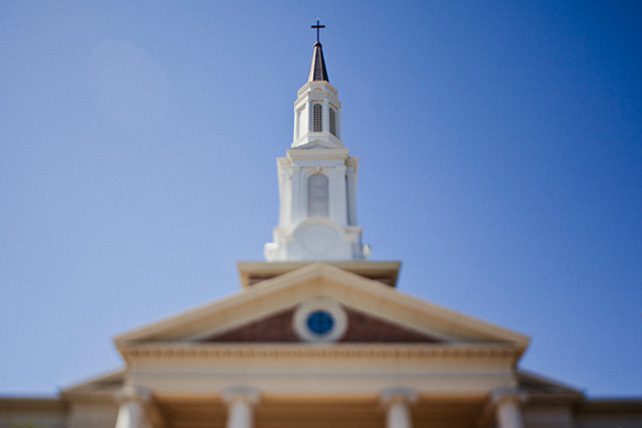Church matters, and because church matters, what we mean by church matters.
The New Testament presents the church as both universal and local, but its emphasis is overwhelmingly on specific local congregations—gatherings of believers committed to living out the gospel together. The New Testament show that the church isn’t just a place we go—it’s a people living on mission together. It does not require a steeple, but it does require people.
Of course, defining what makes a church biblical can be tricky. Many groups call themselves churches but don’t function as the New Testament describes. Church expressions vary across time and culture, yet I think six essential marks define what a biblically faithful church actually is.
These marks are true in every context—from a house church in China to a megachurch in Rio. But how they play out will look different depending on the culture. That’s where contextualization matters.
So, let’s walk through these marks and talk about what they look like in different contexts.
1. Scriptural Authority: A Church Rooted in the Word
A church that isn’t anchored in God’s Word isn’t a church—it’s just a social club with religious overtones. The apostles consistently pointed to Scripture as their authority. Peter did it at Pentecost (Acts 2). Paul did it in the synagogues (Acts 17). Paul made it clear in 2 Timothy 3:16-17 that Scripture is the foundation for teaching, correction, and training in righteousness.
But let’s be honest—many churches today function more like self-help centers than gospel-proclaiming communities. Some drift into motivational talks, while others let cultural trends dictate their theology.
Churches must lean into scriptural authority in contextual ways. In the West, where biblical literacy is declining, churches can emphasize biblical preaching and theological depth. People don’t just need inspiration—they need formation.
In oral cultures, like parts of Africa or South Asia, scriptural authority may be expressed through storytelling and communal recitation of God’s Word rather than a printed Bible study. In places where persecution is real—think North Korea or parts of the Middle East—churches often gather around memorized Scripture because they can’t access written copies.
The methods vary, but the authority of God’s Word remains non-negotiable.
2. Biblical Leadership: A Church Led by Called and Qualified Leaders
Churches need leaders. Period. Leaders matter. Period. The New Testament clearly shows that churches had elders, pastors, deacons, and other leaders equipping the body (Ephesians 4:11-12, 1 Timothy 5:17). Leadership isn’t optional—it’s biblical.
That said, leadership structures aren’t one-size-fits-all. A church in the U.S. might have a well-defined elder board and formal staff, while a house church in China might operate with shared leadership to avoid government attention. In some cultures, leadership looks more like a respected elder guiding a small group of believers rather than a formal pastor with a seminary degree.
Some churches lean too far toward hierarchy, while others reject leadership altogether. Both miss the biblical balance. The key isn’t the structure—it’s whether leaders are biblically qualified and equipping believers for mission.
3. Preaching and Teaching: A Church That Proclaims Truth
A church that isn’t preaching and teaching God’s Word, might do some good things, but it is missing an essential part of being a church.
The early church devoted itself to the apostle’s teaching (Acts 2:42). Paul told Timothy to preach the Word—in season and out of season (2 Timothy 4:2). Faithful preaching isn’t just an add-on to worship; it’s central to how God shapes his people.
But how that preaching looks will vary. In Africa, where oral traditions are strong, preaching often involves storytelling and repetition to reinforce key truths. In the U.S., where attention spans are shrinking, some churches project outlines and use creative illustrations. That’s fine, as long as they don’t sacrifice biblical depth (the Sermon on the Mount is less than 20 minutes long, after all). In persecuted contexts, like some of the Islamist Muslim contexts, preaching sometimes happens through whispered Bible studies in homes or over encrypted messaging apps.
Preaching must always be biblical, but its format can (and should) be adapted to the context.
4. Ordinances (or Sacraments): A Church That Practices Baptism and the Lord’s Supper
Jesus commanded his followers to baptize new believers (Matthew 28:19) and to celebrate the Lord’s Supper (1 Corinthians 11). The early church did both, and so should we.
And, again, the way these ordinances are practiced varies. In the West, baptisms often happen in church buildings or pools. In the Middle East, baptisms are sometimes done secretly at night to avoid persecution. In some tribal cultures, baptism may take place in a communal river, making it a highly public declaration of faith.

